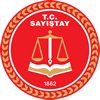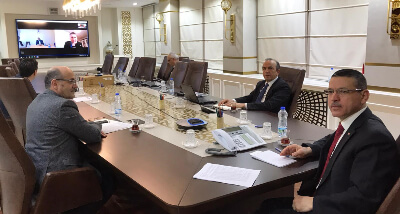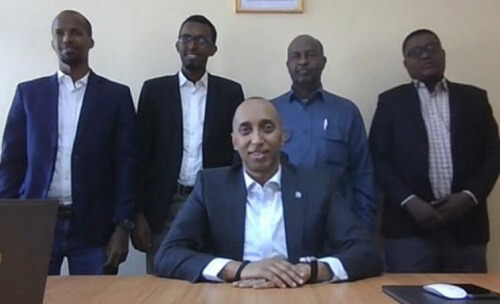What is PAP-APP?
IDI, AFROSAI-E and CREFIAF have established a partnership to support the SAIs included in the Global Call for Proposals Tier 2. Intensive support is provided to enable the SAIs to establish long-term strategic capacity development programs. The programme is called the Accelerated Peer-Support Partnership or Partenariat d'Appui Accéléré par des Pairs (PAP-APP). The name highlights the peer-support and partnership emphases of the programme. Accelerated highlights the special, more intensive nature of the support.
Background of the Program
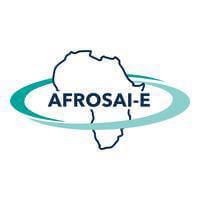
The GCP has two tiers, where most SAIs are in tier 1. These SAIs are expected to develop project proposals largely by themselves. The 2nd Tier of the GCP involves more intensive support to a small group of the most challenged SAIs that struggle with developing strategic capacity development programs, particularly SAIs in politically unstable or fragile and conflict environments.
The overarching purpose of the implementation of the GCP is the sustainable improvement in SAI performance. With improved capacity and performance, the SAIs are expected to contribute to greater accountability, transparency and governance in their countries, and ultimately make a difference in the lives of citizens.
Worldwide experiences of SAI capacity development show that peer-to-peer cooperation can both ensure highly qualified and relevant advice, as well as ensure a trustful and sustainable relationship between SAI employees and advisors. The INTOSAI community organizations, the IDI, AFROSAI-E and CREFIAF, have collectively wide experience and access to resources in almost all areas of SAI development. The organizations also have previous experience of working with the selected SAIs, as well as ongoing initiatives with some of these SAIs.
Against this backdrop and given the respective and complementary roles of AFROSAI-E, CREFIAF and IDI, the three organizations have decided to join forces and create synergies in a common programme for supporting the SAIs.
In January 2018, the IDI, AFROSAI-E and CREFIAF agreed on a MoU for five years (2018-2023) to work collectively with the SAIs. A partnership agreement was also agreed, which establishes a joint programme, a result framework and the main steering mechanisms for 2018 and 2019.
The Programme document outlines how the support is to be provided to the SAIs, including long-term targets, principles of engagement, implementation strategy, budget overview and staffing. The programme document serves as a joint document for both the partners and the financial donor(s) to the programme.
Objectives
The programme’s overall objective is to empower Supreme Audit Institutions (SAIs) in politically unstable and challenging environments to enhance their capacity and to improve their performance, to be able to make a difference to the lives of the citizens in their countries in line with International Standards of Supreme Audit Institutions number 12:
- Strengthening the accountability, transparency and integrity of government and public sector entities
- Demonstrating ongoing relevance to citizens, Parliament and other stakeholders
- Being a model organisation through leading by example
The support provided to the targeted SAIs is expected to address all main challenges of the SAI. There shall be a high focus on delivery of support through long-term partnerships between the targeted SAI, donors and providers of support from the community of the International Organisation of Supreme Audit Institutions (INTOSAI). Worldwide experiences of SAI capacity development show that peer-to-peer cooperation can both ensure highly qualified and relevant advice, as well as ensure a trustful and sustainable relationship between SAI employees and advisors.
Expected results
The Programme is planned for two phases:
- Phase 1 of two years to assist the SAIs to clarify strategic priorities and operational plans, and establish long-term project proposals.
- Phase 2 of several years with support to implementation of project proposals developed in Phase 1.
The expected results for Phase 1 in 2018-19 are planned as follows:
- Strengthened SAIs strategic management: General indicator: SAI-PMF SAI-3 Strategic Planning Cycle. Target: Level 2 as an average for all supported SAIs by the end of 2019
- Strategic plans have been developed based on needs assessments and containing core elements for effective performance of the SAI.
- Operational plans are developed with a clear performance and results orientation, especially an indication of the number of audits to be carried out.
- SAIs have sufficient, effective and coordinated external support
- Comprehensive plans for external financial and technical support to strategic plan implementation are developed.
- SAIs have dedicated staff and responsibility for coordination of external support
- Funding and cooperation agreements established to meet the needs of the Strategic plan implementation document.
- SAIs lead by example in the areas of gender, inclusion and diversity
- Gender, inclusion and diversity are considered by the SAIs in the strategic and operational planning process.
Partner-SAIs
Nine SAIs are partners and beneficiary intuitions of the programme as they have been selected for the Global Call for Proposals Tier 2. These SAIs are in the Democratic Republic of the Congo (DRC), Madagascar, Guinea-Conakry, Togo and Niger (French-speaking, CREFIAF members), and Eritrea, Zimbabwe, Sierra Leone and The Gambia (English speaking, AFROSAI-E members).
What Has Been Done So Far? Activities 2018-2019
The focus of Phase 1 of two years is to clarify strategic priorities and operational plans and establish long-term project proposals for all SAIs. The support to the Tier 2 SAIs is planned with different tracks as the SAIs have a different starting point.Generally, the activities are to assist each SAI to:
- establish project functions, including strategic planning teams and communication facilities
- systematically assess their current capacity, performance and needs and to develop updated or new strategic and operational plans with the involvement of all SAI staff
- consult key national stakeholders on expectations of SAI development
- print and share electronically the finalized strategic plan
- sensitize and motivate all staff and national stakeholders on the finalized strategic and operational plans
- develop a comprehensive plan and project proposals for external financial and human support to the implementation of the strategic plan
- mobilize comprehensive support for the implementation of the strategic plan
Funding
The PAP-APP Phase 1 has been funded by the Austrian Development Agency, the Ministry of Foreign Affairs of Iceland, the Ministry of Europe and Foreign Affairs of France, SAI Qatar and DFID, as well as with in-kind support from the SAIs of Gabon, Ghana, Namibia, Norway, Senegal and Sweden.
Participation from the TCA
In response to IDI’s Call for peer-to-peer support to some of the most challenged Supreme Audit Institutions, the TCA showed its willingness to establish and maintain close relations and partnerships with SAIs in different environments. As a result of negotiations, an Agreement on supporting capacity building activities for the Office of the Auditor General of Somalia (OAGS) has been signed between the Turkish Court of Accounts (TCA) and the INTOSAI Development Initiative (IDI).
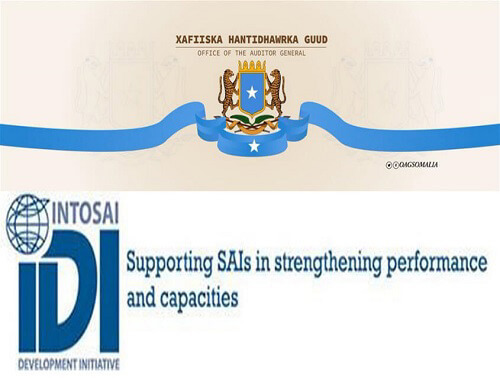
As part of a 3-year Strategic Plan, OAGS has ambitions to enhance its capacity to conduct an audit of ICT-systems. The annual accounts in Somalia are produced through an Integrated Financial Management System, and there are several other ICT-systems being developed to use within Government Agencies. Assessing how well the ICT-systems are working is important for OAGS, in order to ensure reliable financial statements as well as efficient and effective delivery of services.
Having conducted audits of ICT-systems for many years, the TCA has a wide experience in such audits. According to the agreement, the TCA will provide advisors (resource persons) for the peer support project conducted by the IDI to the OAGS. The advisors will be a part of the audit team already established within the project. The project is a partnership with IDI and AFROSAI-E for 2018-2020.
The overall objective of the project is to enable OAGS to implement its strategic plan. Audit of ICT is linked to the support to strategic goal number one: Timely, relevant and high-quality audit reports in line with international standards.
The funding for the project is provided by the Norwegian embassy in Nairobi and IDI core funds.
